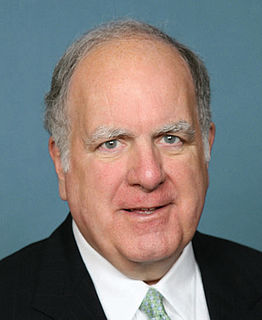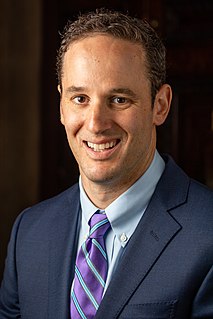Top 1200 Debt Quotes & Sayings - Page 4
Explore popular Debt quotes.
Last updated on April 21, 2025.
It is a well-known fact that in countries in which the national debt is properly funded, and an object of established confidence, it answers most of the purposes of money. Transfers of stock, or public debt, are there equivalent to payments in specie; or, in other words, stock, in the principal transactions of business, passes current as specie. The same thing would, in all probability, happen here, under the like circumstances.
I was thinking about the universe wanting to be noticed, and how I had to notice it as best I could. I felt that I owed a debt to the universe that only my attention could repay, and also that I owed a debt to everybody who didn’t get to be a person anymore and everyone who hadn’t gotten to be a person yet.
All loans, in the eyes of honest borrowers, must eventually be repaid. All credit is debt. Proposals for an increased volume of credit, therefore, are merely another name for proposals for an increased burden of debt. They would seem considerably less inviting if they were habitually referred to by the second name instead of by the first.
What we define as a bubble is any kind of debt-fueled asset inflation where the cash flow generated by the asset itself - a rental property, office building, condo - does not cover the debt incurred to buy the asset. So you depend on a greater fool, if you will, to come in and buy at a higher price.
Students who acquire large debts putting themselves through school are unlikely to think about changing society. When you trap people in a system of debt, they can't afford the time to think. Tuition fee increases are a disciplinary technique, and by the time students graduate, they are not only loaded with debt, but have also internalized the disciplinarian culture. This makes them efficient components of the consumer economy.
The environmental crisis is somber evidence of an insidious fraud hidden in the vaunted productivity and wealth of modern, technology-based society. This wealth has been gained by rapid short-term exploitation of the environmental system, but it has blindly accumulated a debt to nature-a debt so large and so pervasive that in the next generation it may, if unpaid, wipe out most of the wealth it has gained us.
I am prepared to discuss the things that I believe we need to do not just to raise the debt limit. Raising the debt limit is the easiest thing. That's one vote away. The hard thing is to show the world we are serious about putting our spending in order so we can show people we'll able to pay our bills down the road.
The Catholic community, with many others, has long worked for this new commitment on global health and debt relief (President George W. Bushs proposed $15 billion Global AIDS initiative). I hope that Congress will now appropriate the money needed to make this legislation a reality, and that the U.S. government will press for strengthening the debt relief program along the lines proposed by this legislation.
There are respectable individuals, who from a just aversion to an accumulation of Public debt, are unwilling to concede to it any kind of utility, who can discern no good to alleviate the ill with which they suppose it pregnant; who cannot be persuaded that it ought in any sense to be viewed as an increase of capital lest it should be inferred, that the more debt the more capital, the greater the burthens the greater the blessings of the community.
If the US Government was a family—they would be making $58,000 a year, spending $75,000 a year, & are $327,000 in credit card debt. They are currently proposing BIG spending cuts to reduce their spending to $72,000 a year. These are the actual proportions of the federal budget & debt, reduced to a level that we can understand.
The burden of the national debt consists not in its being so many millions, or so many hundred millions, but in the quantity of taxes collected every year to pay the interest. If this quantity continue the same, the burden of the national debt is the same to all intents and purposes, be the capital more or less.
The most serious problems lie in the financial sphere, where the economy's debt overhead has grown more rapidly than the 'real' economy's ability to carry this debt. [...] The essence of the global financial bubble is that savings are diverted to inflate the stock market, bond market and real estate prices rather than to build new factories and employ more labor.
We need a wealth tax that on a one-time basis is going to take back at least some small fraction of the great windfall that the upper 1 percent, or 5 percent and pay down the government debt, pay back the federal debt because we can't put this on the next generation or they're going to be buried paying taxes.
Debt is so ingrained into our culture that most Americans can't even envision a car without a payment ... a house without a mortgage ... a student without a loan ... and credit without a card. We've been sold debt with such repetition and with such fervor that most folks can't conceive of what it would be like to have NO payments.
Obama has been perhaps the most partisan President since Truman. He hasn't learned to be civil - note his insulting speech to Paul Ryan, who did us the courtesy of scoring a budget. The president has to talk to Republicans when it comes to the debt ceiling. He has reached the debt ceiling before anyone expected.
If you have credit card debt and credit card companies continue to close down the cards, what are you going to do? What are you going to do if they raise your interest rates to 32 percent? That's five times higher than what your kid is going to pay in interest on a student loan. Get rid of your credit card debt.
The statement, "The debt problem has become so extreme that we have no choice but to cut social spending" is presented as an objective assessment of our situation. But can you imagine a media commentator making the following assertion? "The debt problem has become so extreme that we have no choice but to raise taxes on the rich."
If you ask the question of Americans, should we pay our bills? One hundred percent would say yes. There's a significant misunderstanding on the debt ceiling. People think it's authorizing new spending. The debt ceiling doesn't authorize new spending; it allows us to pay obligations already incurred.
In Iraq, I listened to David Petraeus speak every day about how we had to rebuild Iraq's oil infrastructure and protect it. But, if we're going to go trillions of dollars in debt over Iraq, why can't we go billions of dollars in debt and make every single coal-producing plant clean in West Virginia?
If we keep kicking the can down the road, if we follow the president's lead or if we pass the Senate budget, then we will have a debt crisis. Then everybody gets hurt. You know who gets hurt first and the worst in a debt crisis? The poor, the elderly. That's what we're trying to prevent from happening.
Once the settlement is completed, the credit card company will report it to the credit bureaus, which will then make a notation on your credit report that that account was paid by settlement. That's going to signal to future lenders that you left the last guy hanging. That's why, as with bankruptcy, debt settlement is an extreme option, one you shouldn't take lightly. It's not just an easy, cheap way to eliminate debt.
When you talk about raising that debt limit, the only way that I would ever support raising the debt limit if we also talk about budgetary controls on the federal government, capping its spending, how do we deal with the Social Security, Medicare and Medicaid problems, because they cannot continue to run on auto-pilot.
Meanwhile, the U.S. debt remains, as it has been since 1790, a war debt; the United States continues to spend more on its military than do all other nations on earth put together, and military expenditures are not only the basis of the government's industrial policy; they also take up such a huge proportion of the budget that by many estimations, were it not for them, the United States would not run a deficit at all.
My mother was being hounded by a debt collector over a debt that she didn't owe, and she eventually just paid it because she wanted the calls to stop. I was very surprised. It sounded so strange. I started poking around on the internet and found this was extremely common. There was this world where these debts were sold off by the banks for pennies on the dollar and bought and sold.
We have to remember, lefts are the people who created unsustainable national debt, unsustainable health insurance, health care, unsustainable college tuition and debt, unsustainable social welfare programs. Everything the left creates is unsustainable, it can't go on. Everything they create will eventually implode because it can't work as they designed it. Nothing they do is sustainable. That's the great irony. But they claim to know how to sustain life as we know it.
I place economy among the first and most important virtues and public debt as the greatest dangers to be feared. To preserve our independence, we must not let our rulers load us with perpetual debt. If we run into such debts, we must be taxed in our meat and drink, in our necessities and in our comforts, in our labor and in our amusements. If we can prevent the government from wasting the labor of the people, under the pretense of caring for them, they will be happy.
You settled a debt instead of paying in full will stay on your credit report for as long as the individual accounts are reported, which is typically seven years from the date that the account was settled. Unlike with bankruptcy, there isn't a separate line on your credit report dedicated to debt settlement, so each account settled will be listed as a charge-off.
You don't pay back your parents. You can't. The debt you owe them gets collected by your children, who hand it down in turn. It's a sort of entailment. Or if you don't have children of the body, it's left as a debt to your common humanity. Or to your God, if you possess or are possessed by one. The family economy evades calculation in the gross planetary product. It's the only deal I know where, when you give more than you get, you aren't bankrupted - but rather, vastly enriched.
Henry James once defined life as that predicament which precedes death, and certainly nobody owes you a debt of honor or gratitude for getting him into that predicament. But a child does owe his father a debt, if Dad, having gotten him into this peck of trouble, takes off his coat and buckles down to the job of showing his son how best to crash through it.
When people are running up more and more debt for housing, they call that "real wealth." It exposes what's wrong in the mainstream economics and why most of the economics that justifies austerity programs and economic shrinkage is in the textbooks is not scientific. Junk economics denies the role of debt and denies the fact that the economic system we have now is dysfunctional.
We have to have an aggressive, long-term plan to tackle our nation’s debt, but attempting to balance the budget on the backs of veterans who have risked life and limb in service of our country is unacceptable. I believe we can and should work together to find reasonable and common-sense cuts that will reduce our debt, but as a generation of warriors returns from two wars, our most solemn responsibility is to make sure they have the care and benefits they have earned.
Environmental concern is a little like dieting or paying off credit-card debt - an episodically terrific idea that burns brightly and then seems to fade when we realize there's a reason we need to diet or pay down our debt. The reason is that it's really, really hard, and too many of us in too many spheres of life choose the easy over the hard.
No pecuniary consideration is more urgent, than the regular redemption and discharge of the public debt: on none can delay be more injurious, or an economy of time more valuable. ... Cherish public credit. One method of preserving it is to use it as sparingly as possible: avoiding occasions of expence (and) avoiding likewise the accumulation of debt ... not ungenerously throwing upon posterity the burthen which we ourselves ought to bear.


















































